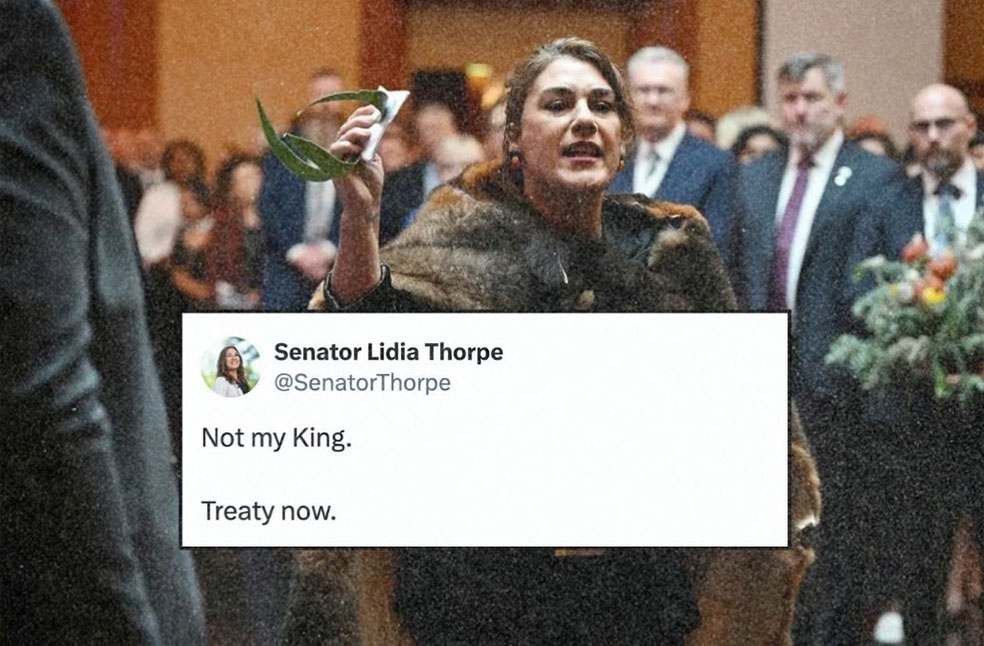Sydney: Australia’s Senate has censured Indigenous lawmaker Lidia Thorpe after she interrupted a visit by King Charles III to Parliament last month.
The motion, led by the governing Labor Party, passed with 46 votes in favour and six against.
Lidia Thorpe, a Gunnai, Gunditjmara, and Djab-Wurrung woman representing Victoria, released a statement before the vote, declaring that she would not be silenced.
Thorpe emphasized that the Senate’s censure was symbolic, as it has no legal power to remove senators and that, “I will not be silent. The truth is, this colony is built on stolen land, stolen wealth, and stolen lives.”
Thorpe called for accountability for crimes committed by the British Crown against the First Peoples of Australia, including war crimes, crimes against humanity, and failure to prevent genocide.

Although Australia has been largely independent from the UK since 1901, it remains a Commonwealth realm with King Charles as its head of state.
During his ceremonial visit to Australia’s Parliament House on October 21, Thorpe’s protest briefly disrupted proceedings. The protest, which included Thorpe heckling the monarch, was widely shared globally, with some condemning and others supporting it.
Following the Senate’s censure, Thorpe ripped the paper containing the motion in two, a gesture reminiscent of New Zealand’s Te Pati Maori legislator Hana-Rawhiti Maipi-Clarke, who recently tore up a bill concerning land rights for Maori tribes before performing a traditional haka dance in protest.
The censure of Lidia Thorpe highlights the ongoing tensions surrounding Australia’s relationship with its colonial past and the British monarchy. Thorpe’s refusal to be silenced and her continued advocacy for justice for Indigenous peoples remain central to her political stance.



